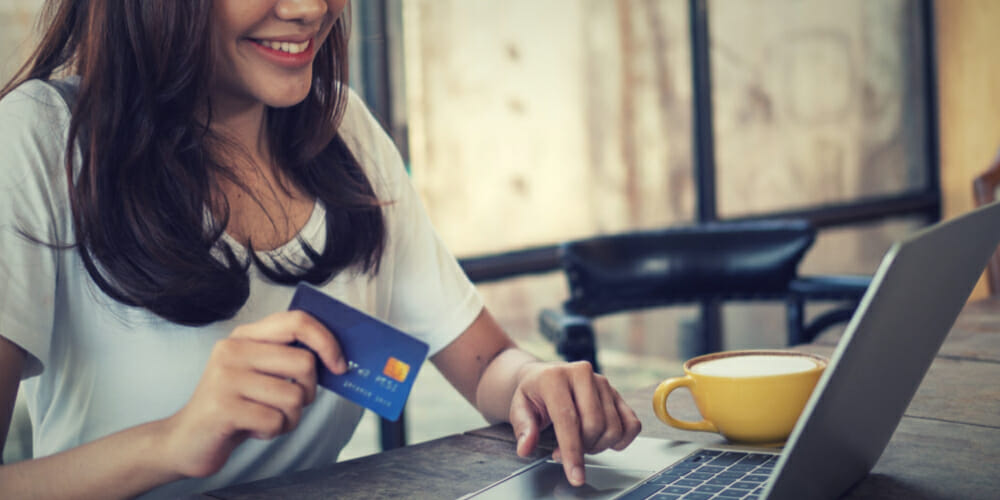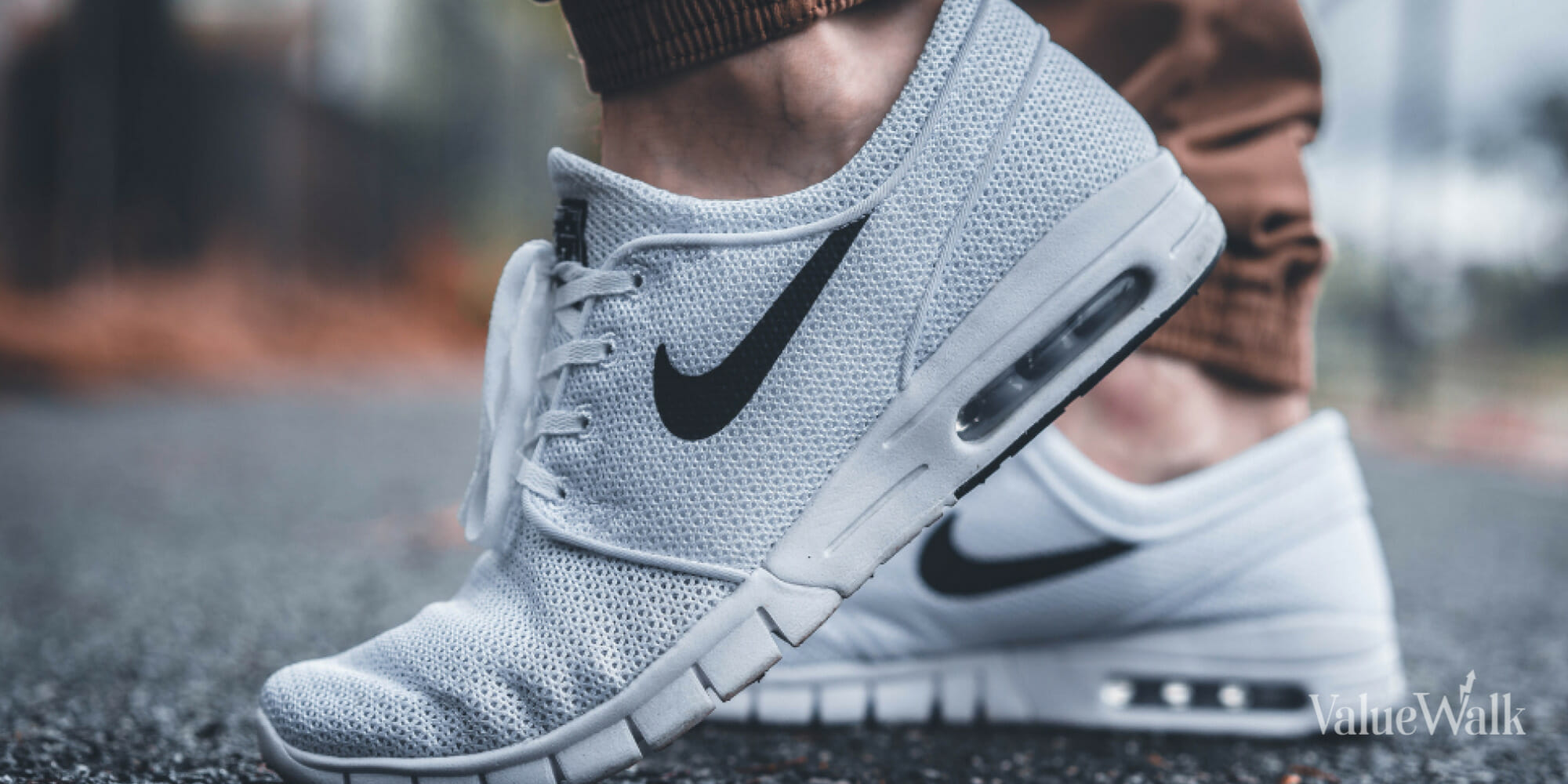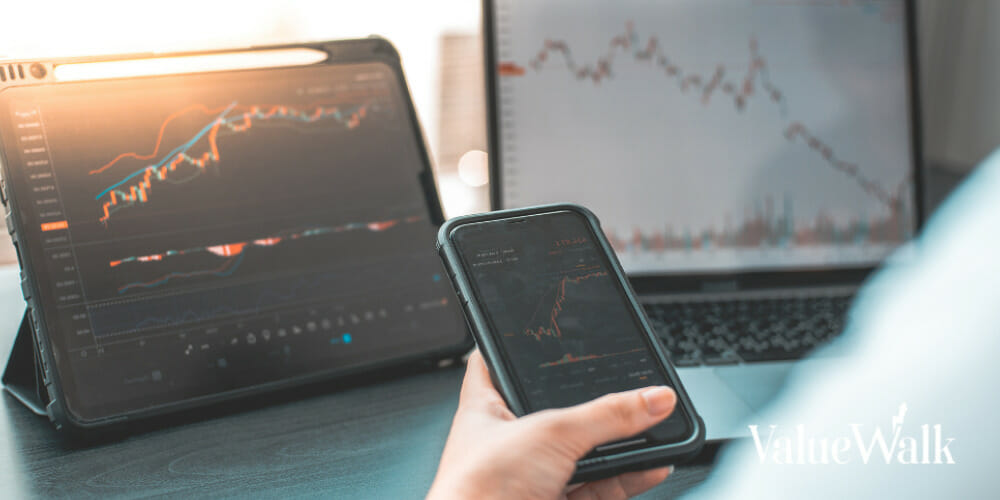Many purchases are made with the help of debit cards in online and physical stores. But with the increase in cybercrime daily, debit card owners are getting concerned. How are these cards safe to use in online purchases? How can they protect their personal information and debit card score from fraudsters?
Yes, using a debit card online is safe if you take some precautions. When using your debit card online, ensure the website is secure, avoid clicking unnecessary emails and pop-ups, and monitor your account regularly. This way, you confirm that your debit card is safe to use.
This post will clarify all your doubts about debit cards and how you can safely use them for your online purchase. It will also highlight the tips and tricks to prevent your card from fraudsters. So, let’s get started!
What Is A Debit Card?
A debit card is a plastic card that gives the cardholder a set amount of funds against each purchase. The term plastic card here represents the cardholder’s identity. The funds are transferred directly from the cardholder’s bank checking account to the merchant’s account.
Debit cards are issued by banks and can be used anywhere that credit cards are accepted. It has many benefits, such as being a convenient and safe purchase. They are also accepted by a wide range of online and offline businesses.
In addition, debit cards allow cardholders to track their spending and see exactly where their money is going. Some debit cards may also offer rewards or cash-back programs, which can further help cardholders save money. And, if a debit card is lost or stolen, the cardholder’s bank account is not at risk since the funds are not accessible without the PIN.
How To Use Your Debit Card Online?
Using your prepaid debit card for online shopping is quick and easy once you know where to enter your information. If you’re new to using debit cards online, you should know a few things. Here’s a quick guide on using your debit card for online transactions:
- Make sure the website is secure. Before entering your debit card information on any website, ensure the site is secure.
- Find the right field for your debit card information. You’ll be asked to enter your payment information when you’re ready to checkout. Look for the field labeled “Debit Card” or something similar.
- Enter your debit card number. It is the 16-digit number on the front of your debit card.
- Enter your expiration date and CVV code. These are the two numbers on the back of your debit card. The expiration date is usually four digits long, and the CVV code is usually three digits long.
- Click “Submit” or “Pay.” Once you’ve entered all of your debit card information, you can click the button to submit your payment.
- At a physical store, you can simply pay by swiping your card and entering a PIN.
When using your debit card online, ensure the website is secure. You can tell if a website is secure if the URL starts with https:// and there is a padlock next to the URL.
Benefits & Drawbacks Of Using Debit Cards Online
Debit cards offer a convenient way to pay for online purchases. However, there are also some potential drawbacks to using debit cards that consumers should be aware of. Here is a list made separately to highlight the advantages and disadvantages of using a debit card online:
Advantages
When making purchases online, one of the most convenient methods is to use your debit card. Debit cards offer several benefits that make them ideal for shopping online, including
- Debit cards are more secure than using a credit card. When you use a debit card, the funds are immediately withdrawn from your account, so there is no risk of identity theft or fraud.
- Debit cards are accepted at most online retailers. It means you can use your debit card to shop at your favorite stores without worrying about whether or not they accept credit cards.
- Debit cards offer a convenient way to keep track of your spending. When you use a debit card, you can easily track your purchases and see precisely how much money you have available. It can help you stay within your budget and avoid overspending.
- Debit cards are a great alternative to cash. If you don’t want to carry around a lot of cash, using your debit card is a convenient way to make purchases without worrying about carrying large amounts of money.
Disadvantages
Using debit cards online not only comes with benefits but there are also potential drawbacks to using debit cards online. Its main disadvantages include:
- When you use your debit card to make purchases online, you are exposing your account to potential fraudsters. This information can be intercepted by a third party and used to commit fraud against your account.
- If your debit card is lost or stolen, someone could use it to make unauthorized transactions against your account. It could result in funds being taken from your account without your permission.
- Debit cards do not offer the same level of protection as credit cards regarding fraud and unauthorized transactions. It is because, with a debit card, the funds are taken directly from your account, and you may not be able to get them back if they are used fraudulently.
Limits of Liability
If your debit card is lost or stolen, you should report it as soon as possible to limit your liability. And if you’re ever in doubt about whether you’re liable for a debit card charge, just call your bank.
There are limits to your liability if your debit card is lost or stolen, but it’s important to know what they are.
- If you report your debit card as lost or stolen within two business days, you can only be held liable for $50.
- If you report it within two business days, but within 60 calendar days, you could be liable for up to $500.
- If you don’t report it within 60 days, you could be held liable for the entire amount of any unauthorized transactions.
It’s important to know that these limits only apply to unauthorized transactions. If you authorize a transaction, you’re responsible for the entire amount. So, if you’re ever in doubt about a debit card charge, just call your bank. They’ll be happy to help you figure it out.
Debit Card Protection
Debit cards are a convenient and safe way to pay for purchases. However, if your debit card is lost or stolen, it is essential to know what to do to protect yourself. Here are some tips for protecting your debit card:
- Keep your debit card in a safe place. Do not carry it with you unless you are going to use it.
- When using your debit card, be sure to keep it in your sight at all times. Do not let anyone else use it.
- Be aware of your surroundings when using your debit card. If you are using an ATM, make sure that no one is watching you enter your PIN.
- Never give your debit card number or PIN to anyone.
- If you lose your debit card, immediately report it to your bank.
- Review your bank statements regularly to check for unauthorized transactions.
Debit cards are a convenient and safe way to pay for purchases, but you must take steps to protect yourself. Following these tips can help ensure that your debit card is used safely and responsibly.
Debit Card Security Features
If you’re like most people, you probably use your debit card for everything from groceries to gas. Here are some of the debit card security features you should be aware of:
Card Verification Value Code (CVV)
CVV is an important security feature for debit cards. It is a 3-digit code that is used to verify that the rightful owner is using the card. This code is typically printed on the back of the card and must be entered when making online or over-the-phone purchases.
CVV codes provide an extra layer of security against debit card fraud. If you are ever asked for your CVV code by someone you do not know and trust, do not give it to them. Only provide your CVV code to businesses that you have verified as legitimate and that you are purchasing with.
When in doubt, always err on the side of caution and do not give out your CVV code. Remember that your CVV code is not the same as your debit card PIN.
Personal Identification Number (PIN)
PIN is a debit card security feature that helps to ensure that only the authorized cardholder can use the card. The PIN is typically a four-digit number entered into a keypad when making a purchase or ATM transaction. The transaction will not be approved if the correct PIN is not entered.
One of the benefits of using a PIN debit card is that it is a more secure form of payment than a traditional debit or credit card. If your debit card is lost or stolen, someone needs to know your PIN to use it. This makes it much less likely that your debit card will be used fraudulently.
To ensure that your debit card PIN remains secure, it is essential never to write your PIN down or share it with anyone. If you think someone may know your PIN, you should change it as soon as possible.
Card Blocking
Debit cards come with a card-blocking feature that can help protect you from fraud. When you enable card blocking, your debit card will be declined if someone tries to use it for an unauthorized purchase.
Blocking your debit card can help prevent fraud, but it will also mean that you cannot use your debit card for any purchases. If you need to make a purchase, you can temporarily unblock your debit card and re-block it when you’re done.
If you think your debit card has been lost or stolen, you can block it immediately by contacting your bank or credit union. You can also typically block your debit card online or through your mobile banking app.
Text Alerts
A text alert is a message sent to your mobile device to notify you of activity on your debit card. Text alerts can help you monitor your account and prevent fraud. You can typically set up text alerts for purchases, withdrawals, balance updates, and more.
Check with your bank or credit union to see what text alerts they offer. Be sure to keep your debit card safe and secure, and monitor your account activity regularly to help prevent fraud.
Signature
The signature is required in addition to the PIN, providing an extra level of protection against fraud. If a signature may be required to verify your identity and prevent unauthorized use if your debit card is lost or stolen.
Some debit cards also offer other security features, such as a photo or hologram of the cardholder, to further deter fraud. It is important to proofread the security features before signing for a debit card.
Tips on How to Stay Safe Online
With the ease of delivery, debit cards also come with risks of scams and theft of personal information, which can lead to serious problems for the card’s owner. Here are all the possible tips mentioned below to help you keep your free of fraudsters:
Verify Website Security
Use a trusted website security verification service like Verify Website Security to check the safety of websites before you visit them. Here is how you can ensure the website is secure:
- Keep your web browser and operating system up to date with the latest security patches.
- Avoid clicking on links or opening attachments from unknown or untrustworthy sources and the pop-ups that appear on your screen while browsing.
- Be cautious of giving out personal information online, especially on unsecured websites.
- Use strong passwords for all your online accounts and make sure to change them regularly.
Monitor Your Account
Another best tip to stay safe online is to monitor your account regularly. It means checking your account settings, statements, and notifications to ensure everything looks normal. Make a list of your transactions to make them easy to monitor.
Check your privacy settings after regular intervals and ensure that only people you know and trust have access to your information. If you notice anything unusual, report it to the appropriate authorities.
Use Secure Connections
It’s important to stay safe online; one of the best ways to do that is to use secure connections. Here are some tips on how to stay safe online by using secure connections:
- Use a secure browser extension or add-on like “https” everywhere. It will help to encrypt your communications with websites and protect your privacy.
- Use a secure VPN (a virtual private network) that encrypts all of your traffic and can help to prevent hackers from intercepting your communications.
- Use secure email services that provide end-to-end encryption, meaning that your messages are encrypted from the moment you send them until the moment they are received.
- Use two-factor authentication, which adds an extra layer of security to your online accounts by requiring you to enter a code from your mobile phone in addition to your password.
Avoid Public WiFi Networks
One of the best tips to stay safe online is to avoid using public wifi networks. These networks are often not secure and can leave your devices and data vulnerable to attack.
The tips to stay safe online by avoiding public wifi networks are:
- Avoid using public wifi whenever possible. If you must use public Wi-Fi, take extra precautions, such as only accessing securely encrypted sites and using trusted networks.
- Be aware of the risks associated with public wifi, such as un-secure networks and possible malicious activity.
- Take steps to protect your privacy when using public wifi, such as a Virtual Private Network (VPN). Be cautious when sharing personal or sensitive information over public wifi.
- Keep your antivirus and security software up to date to help protect against threats that may be present in public.
Never Put Your Card Info In Emails
There are many scams that try to get your credit card information by asking you to email it to them. It is called phishing, and it’s a type of identity theft. Your credit card company will never ask for your information in an email.
If you get an email that looks like it’s from your credit card company asking for your information, don’t reply. Forward the email to the company’s fraud department and then delete it.
Know Your Retailer
One of the best ways to stay safe online is to know who you’re doing business with. Make sure you’re buying from a reputable retailer by researching ahead of time. Check out online reviews, contact customer service, and look for red flags like unrealistic promises or too-good-to-be-true deals.
If you’re not sure about a retailer, take some time to research them before you make a purchase. A little bit of effort upfront can save you a lot of heartaches and money.
FAQs
Will I Get My Money Back if my Debit Card was Hacked?
If you were a victim of identity theft, your bank might be able to refund the fraudulent charges. However, you may not be covered if you simply lost your card or it was stolen. Most banks and credit card companies have policies to protect consumers if their cards are hacked. Be sure to check with your bank or credit card company to determine their policies.
Is It Safe to Give a Debit Card Number Over the Phone?
It is not recommended to give your debit card number over the phone; it’s important to be aware that this could be a scam. Scammers may try to get your debit card number by claiming to be from a legitimate company or organization, such as your bank or credit card issuer. If you are asked to give your debit card number over the phone, it is important to ensure that you are dealing with a reputable company.
What Can a Scammer Do with My Debit Card Number?
A scammer can do much with your debit card number if they get their hands on the card as well as the PIN. They can use it to make unauthorized purchases, withdraw cash from your account, or even run up a bill in your name. In some cases, scammers can use your identity even for making passports and ID cards with your name.
Why Does My Debit Card Information Keep Getting Stolen?
Your debit card information may be getting stolen for many reasons. One common way that thieves get your information is by skimming devices. Another way scammers use to steal your information is through phishing scams. Your information can also be stolen if you use your debit card on an insecure website or enter your information into a public Wi-Fi network.
Conclusion
Debit cards are safe and offer many benefits when used carefully. It also comes with some drawbacks that consumers should be aware of. However, it is the responsibility of cardholders to be aware of cybercrime and how they can fortify themselves from it. If you get any unusual signs, just complain about it.





